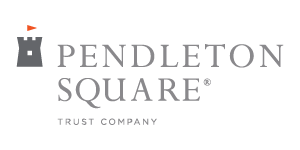For financial advisors, industry success is the constant quest to provide value for clients and help them reach their goals. Clients are scrutinizing fees with increasing zeal in an increasingly crowded market as different wealth management business models emerge. What is one area where financial advisors can differentiate, deepen the long-term relationship and increase visibility with a group of referral sources?
Answer: the “Estate Plan.”
It is vital, often ignored, and an area that cries out for the input and judgment of a financial advisor who has the whole family picture.
Most financial advisors, however, aren’t lawyers and generally don’t otherwise have specific estate planning expertise. That doesn’t mean that they can’t be part of the discovery of and solution for estate planning problems. Financial advisor participation on this topic leads to better long-term outcomes for the client, better retention for the advisor and increased prospects for building business.
How can you issue spot with your clients and be well positioned to offer solutions? Asking questions is essential – and here are five high level questions that all advisors should be asking their clients:
1. “Do you have an estate plan?”
According to the website, Caring.com, it’s 2020 Will Survey shockingly revealed that only 32% of American adults have estate planning documents in place, a sharp decline from 2017. And one can’t assume that high net worth families are any better – the road is littered with cases of wealthy families having no estate plan for large estates. Can you advise a family well if you aren’t asking this question? A probate process without an estate plan will be costly and likely will lead to unexpected and unwanted outcomes for the family. An untimely death could leave the family financially crippled.
Practice Perspective
Studies show 80% or more of an advisor’s clients’ children will leave that advisor once they receive their inheritance. It is foolish to believe that a family relationship will stay with an advisor that did not identify the lack of an estate plan as an issue.
2. “Who prepared the estate plan?”
With the proliferation of online products and the general misunderstanding around the technicalities of estate planning, it’s important to know how the initial estate plan was put together. We see many issues arise when families try to do it themselves. There can be major tax, technical and fiduciary issues that come with estate plans that are “DIY”. A slippery problem is when an estate plan is developed by a lawyer or another expert who is skilled in one area but inexperienced in estate planning. This can lead to dangerous assumptions around the validity, efficiency and workability of an estate plan that come from a trusted source. When experts aren’t involved in the estate plan’s development, we also often see a key component ignored, that of proper staffing for major functions such as executor, trustee, investment advisor, etc. Dropping in unprepared, unwilling or conflicted family members or friends can have disastrous long-term consequences. Finally, expert counsel should be involved to forecast a plan for years into the future to test its efficacy and ensure the client’s goals can be met.
Practice Perspective
The question of “Who Prepared the Estate Plan?” can be a golden opportunity for the advisor to engage with the family beyond the normal small talk around structures. This is the chance for the advisor to be part of the checks and balances for the family’s overall governance and cement the relationship’s trust. Upon identifying a situation where advanced expertise is needed, the financial advisor can be the driver of necessary professional advice to the client by involving their ecosystem of experts. It is a great chance to coordinate with this professional circle – lawyers, accountants, family business advisors, insurance experts etc… that can provide advanced levels of help for the family AND be a source of valuable referrals.
3. “Has your family been involved in the estate plan’s development?”
One of the biggest challenges for families is deciding “how” and “when” to lay out the “why” of the estate plan to their heirs. Fear and uncertainty often underpin this stage.
- Are the beneficiaries ready?
- Will I create entitlement?
- What happens with unmet expectations?
- How do I explain this complication?
One of the biggest threats to wealth preservation is poor communication – failing to communicate early about a plan can lead to family conflict, which can lead to needless expense and angst later in life or after death.
Practice Perspective
The advanced advisor helps the family navigate the volatile communication of feelings, emotions and logic behind these estate planning decisions. It sets them up for long term success with the family and provides the entry point for discussions with an interested next generation.
4. “When was the last time you reviewed your estate plan?”
One of the major mistakes families make in their estate planning is assuming that the creation of an estate plan crosses it off the “to do” list “forever”. This is not the case. It is common for estate plans to become outdated for a variety of reasons (some covered in this and previous INSIGHTS). It is a good idea to review estate plans in anticipation of major life events like:
- Marriage
- Birth
- Divorce
- Death
- Career Change / Retirement / Business Sale / Relocation
- Change in Law
Practice Perspective
What better way to be closer to your client than to be a part of the solution around major life events? By asking about an estate plan during such times, the advisor has the potential to be part of a family’s trusted cabinet for major decisions. It also provides the backdrop to hone or adjust the assumptions around financial planning projections and asset allocation decisions.
5. “Is the estate plan you built properly implemented and funded?”
One of the giant mistakes that take place among families with estate plans is not following through on the implementation of those plans. Such errors include:
- Establishing a revocable trust during life but failing to properly fund by not titling assets correctly.
- Leaving important documents like wills, trusts and powers of attorney in draft form – when not finished or executed, this can lead to confusion about which documents are effective and which are not.
- Failing to update designations for retirement accounts or life insurance. A 401K designated to be left to an ex-spouse is usually not what the deceased intended.
- Not giving proper consideration to the staffing of important roles in an estate plan. Naming the brother-in-law that you are suing as executor is usually not a good idea.
The follow through on details like having fully executed documents, properly funding trusts and keeping beneficiary designations on retirement accounts updated, is critical to a successful estate plan.
Practice Perspective
For the detail-oriented advisor, this is the chance to shine. Ensuring that the ”i’s” are dotted and the “t’s” are crossed, an advisor can provide the client with piece of mind and potentially avoid many expensive mistakes. Professional experts enjoy working with partners that ensure the seamless implementation of their strategies. In addition to being useful on details, oversight of this work can lead to deeper discussions around a financial advisor’s core expertise: investments. These discussions can include topics such as liquidity needs, proper allocation strategies to maximize the plan’s impact and the proper role of life insurance.
Overall Practice Takeaway of the Estate Planning Discussion
If the advisor is helping clients navigate the estate planning process, they are earning every bit of their fee
and delivering exceptional long-term value. They are laying the groundwork for a multi-generational
relationship with the family that will help retain business in the long term. The estate planning discussion not only helps the client’s overall outcome, but it helps the financial advisor provide higher level advice and drives more business.



